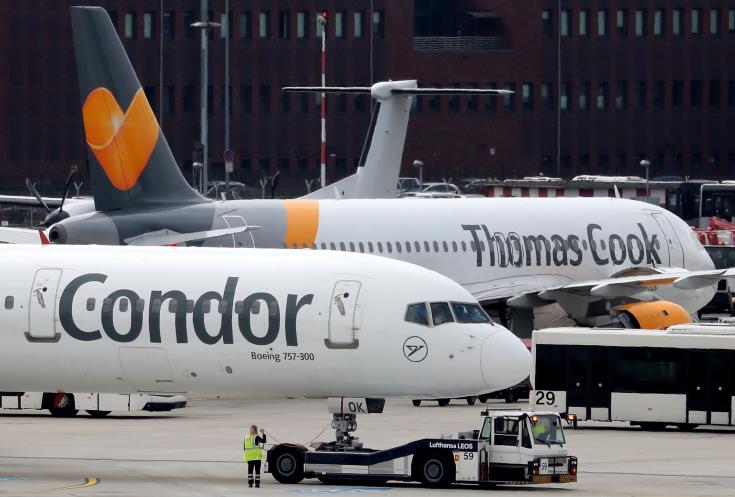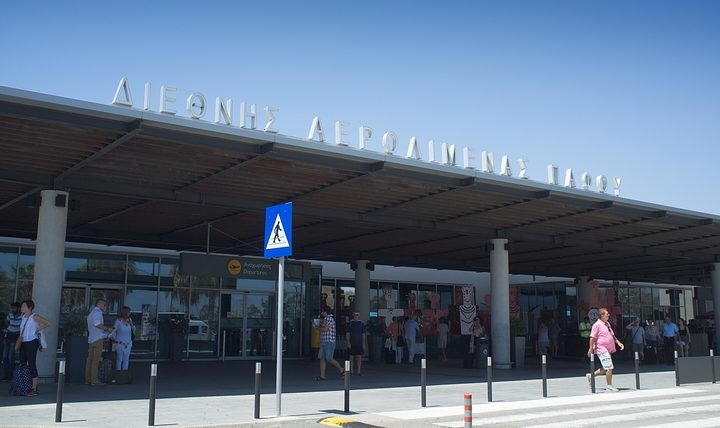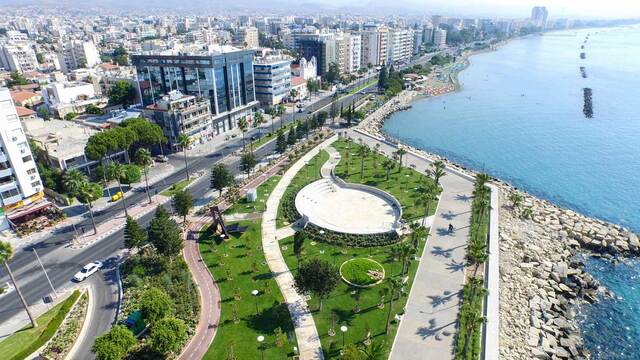Cyprus tourism is in damage limitation mode from the coronavirus outbreak as it faces a disastrous year, with hoteliers and tour operators pleading for state help as they find themselves on the brink of collapse.
Cyprus enjoyed record tourist arrivals of 3.97 million last year, but the coronavirus pandemic may bring arrivals significantly down as March and April are write-offs. The World Tourism Organisation has already downgraded its estimates on global tourism to a contraction of 3% compared with the previous estimate for 4% growth.
The Association of Cyprus Tourist Enterprises (STEK) urged its members to close their hotels for the coming months, rather than coming to the point when limited bookings will force them to shut down for a longer period.
STEK advised its members close until the end of April as they have close to zero bookings.
“If things worsen then hotels will have to close down with their accounts in red for months,” said a source.
STEK’s announcement came after the health services decided to revise travel guidance, putting the UK in category 2 for self-isolation from category 3, effective from March 14.
The Ministry of Health’s revised travel advice concerns people who travelled within the past 14 days from the UK and other high-risk countries.
People coming from the UK will have to self-quarantine for 14 days.
The larger Cyprus Hotels Association is calling the government to step in as soon as possible and support tourist enterprises.
In comments to the Financial Mirror, Zacharias Ioannides, director-general of the CHA, said they are in constant contact with the government anticipating the Finance Ministry’s aid package to businesses.
“We hope that the government will include the tourist enterprises, as they are the backbone of the economy”.
Tour operators cry for help
Cyprus tour operators say they are facing the worst crisis in their history and on a cliff edge after waves of holiday cancellations due to the coronavirus outbreak.
The Association of Cyprus Travel Agents Association (ACTA) called on the state to step in and provide financial aid to tour operators.
The global coronavirus pandemic has hit tourism first, and hardest, with a combination of travel restrictions and fear of being infected prompting cancellations, argues ACTA.
Vassilis Stamataris, Chairman of ACTA, said that on top of a reduction in air services globally, there have been conference cancellations, and cancelled package holidays.
He said Cyprus tour operators are responsible for 70% of incoming tourism and 100% for outgoing.
Losses are currently running at around €30 mln from the collapsed sales, he claimed.
Stamataris said many of ACTA’s 200 or so members were trying to figure out ways to stay afloat with one of the measures being “lay-offs”.
“Unfortunately, it appears that several travel agencies will stop operating, which will be a major blow for Cyprus tourism.”
ACTA’s chairman has asked the government to include tour operators in any financial support plans such as the suspension of taxes, VAT and social security payments to the state.
He echoed hoteliers’ fears that March was a write-off while April and May were not looking any better.
“Easter bookings are at zero… the only hope for the sector is if summer picks up.”
Stamataris said this was the first time in the association’s history that they have had to ask for state help.
He noted that the industry had not asked for help when local airlines like Cyprus Airways and Cobalt collapsed, nor when previous epidemics like SARS and Swine Flu had scarred them.
Tourism is the key driver of the economy contributing around 15% of Cyprus GDP.
Call to arms
Confirming that Cyprus is in for a rough ride, Deputy Minister for Tourism Savvas Perdios said that “a battle is needed” for Cyprus to save the industry.
Perdios said that despite an excellent rate of tourist reservations observed in February it was followed by a freeze for March and April.
“Our effort for this year is to limit the damage. This is a very difficult moment for tourism not just for Cyprus but globally,” Perdios said.
He added that short-term measures will focus on April and May while medium-term measures will concentrate on the summer season.
“But it is important for all of us to know that we have a very difficult year ahead of us. I don’t think we can speak of reaching last year’s levels.”
Perdios said that other country’s measures to contain the spread of coronavirus are not helpful, such as Israel’s decision to impose self-isolation on all inbound tourism or Israeli’s returning home.
“Essentially this means that no Israeli would want to leave the country. Therefore, everything is constantly changing.”
Israel has recently emerged as the island’s third-largest tourist market behind the UK and Russia.
“As the Cyprus tourist season lasts for eight months, from the moment March, April and May are affected the remaining five months are not enough to recover the lost ground.”
Perdios said the “real battle” will begin in the summer to win Cyprus’ market share.
“It is not certain that we will regain our share because a price war will take place.”
‘Down the drain’
Fanos Tekelas, UCLAN Cyprus lecturer in Innovation and Entrepreneurship told the Financial Mirror that the entire year could be a write-off.
“As things stand today, March and April and half of May should be written off. The increase of cases within Cyprus in combination with travel guidance which will see travellers from the UK self-isolating is enough to put a freeze on tourist arrivals,” said Tekelas.
He said, possibly, June will also be a bad month and stakeholder efforts should focus on increasing bookings for July, August and September.
“September is favoured by families with kids, so stakeholders should take that into consideration while designing their plans”.
He argued there is not much stakeholders can do, other than plan for the summer months, as governments are advising their citizens to stay home.
He likened the situation to a “war” with tourist enterprises fighting without any weapons at their disposal.
“The industry was already in for a bumpy ride as we expected arrivals to drop compared to the past two years, while the issue of the renewal of collective agreements is still up in the air and could explode anytime, but coronavirus may well put the last nail in the coffin… at least for this year.”
Tekelas said state intervention is more than necessary as the collapse of the Cyprus tourism sector would bring about a disastrous chain reaction, which will affect the entire economy, pushing up unemployment to crisis-levels.










